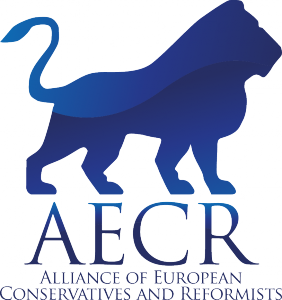 Professor Hannes H. Gissurarson will give a lecture Tuesday 5 November 2013 in a seminar at the Faculty of Business Administration at the University of Iceland, 12–13, in room HT-101 in the University Plaza. The topic is: “Did an Octopus control the Icelandic Economy until the End of the 20th Century? And What Happened Then?” Professor Gissurarson will discuss the thesis presented in some recent works on Iceland, for example in the book Meltdown Iceland by British journalist Roger Boyes, and by Robert Wade and Sigurbjorg Sigurgeirsdottir in New Left Review, that until the final decade of the 20th Century, the Icelandic economy was dominated by an “Octopus” or some “Fourteen Families”, and after that by three business clans.
Professor Hannes H. Gissurarson will give a lecture Tuesday 5 November 2013 in a seminar at the Faculty of Business Administration at the University of Iceland, 12–13, in room HT-101 in the University Plaza. The topic is: “Did an Octopus control the Icelandic Economy until the End of the 20th Century? And What Happened Then?” Professor Gissurarson will discuss the thesis presented in some recent works on Iceland, for example in the book Meltdown Iceland by British journalist Roger Boyes, and by Robert Wade and Sigurbjorg Sigurgeirsdottir in New Left Review, that until the final decade of the 20th Century, the Icelandic economy was dominated by an “Octopus” or some “Fourteen Families”, and after that by three business clans.
 Professor Gissurarson will analyse the origin and meaning of the two concepts “The Fourteen Families” and “The Octopus” in the Icelandic debate, both of those concepts having interesting foreign roots. He will look at the empirical evidence for the hypothesis that groups which could be characterised in either of these two ways had been dominant in the economy for some period of time. In this context he explores surveys of the biggest Icelandic companies in the 1980s and 1990s, the relative sizes of the private and the public sector in Iceland and the size and influence of the cooperative movement. He will move on to discuss the three business groups which became powerful in the early 2000s, the Baugur Clan, the Exista Group and the two Bjorgolfs, father and son. In the report by the Special Investigation Commission on the 2008 bank collapse it was criticized that public authorities did not regard those three groups as interrelated, creating an additional systemic risk. Professor Gissurarson’s lecture forms a part of the joint project of RNH and AECR, the Alliance of European Conservatives and Reformists, on “Europe, Iceland and the Future of Capitalism”.
Professor Gissurarson will analyse the origin and meaning of the two concepts “The Fourteen Families” and “The Octopus” in the Icelandic debate, both of those concepts having interesting foreign roots. He will look at the empirical evidence for the hypothesis that groups which could be characterised in either of these two ways had been dominant in the economy for some period of time. In this context he explores surveys of the biggest Icelandic companies in the 1980s and 1990s, the relative sizes of the private and the public sector in Iceland and the size and influence of the cooperative movement. He will move on to discuss the three business groups which became powerful in the early 2000s, the Baugur Clan, the Exista Group and the two Bjorgolfs, father and son. In the report by the Special Investigation Commission on the 2008 bank collapse it was criticized that public authorities did not regard those three groups as interrelated, creating an additional systemic risk. Professor Gissurarson’s lecture forms a part of the joint project of RNH and AECR, the Alliance of European Conservatives and Reformists, on “Europe, Iceland and the Future of Capitalism”.


